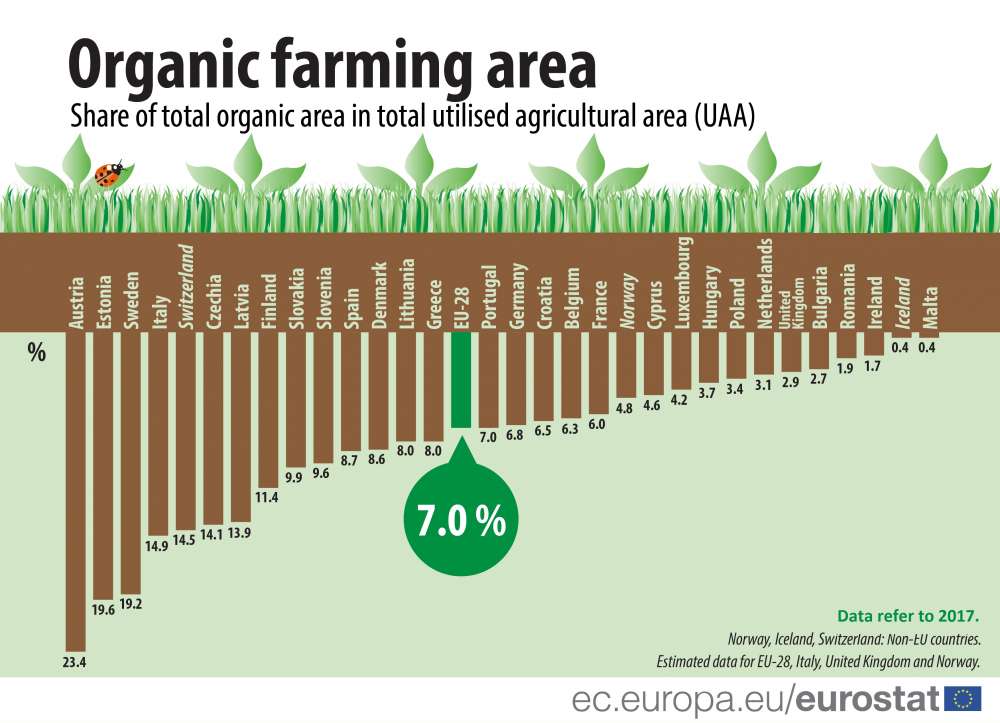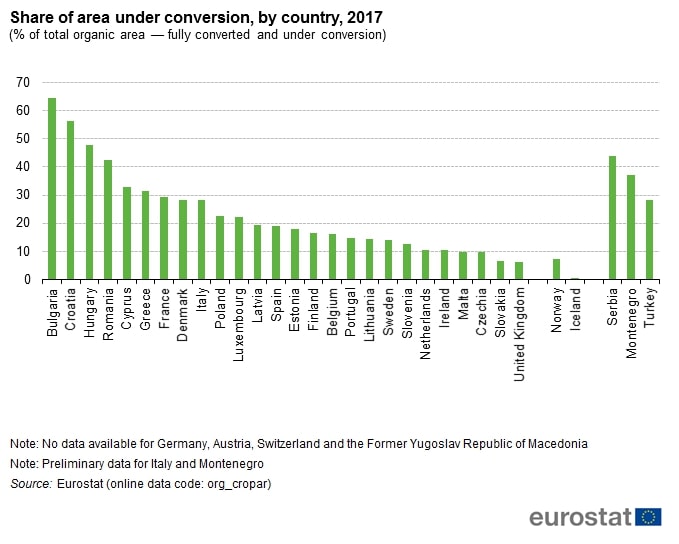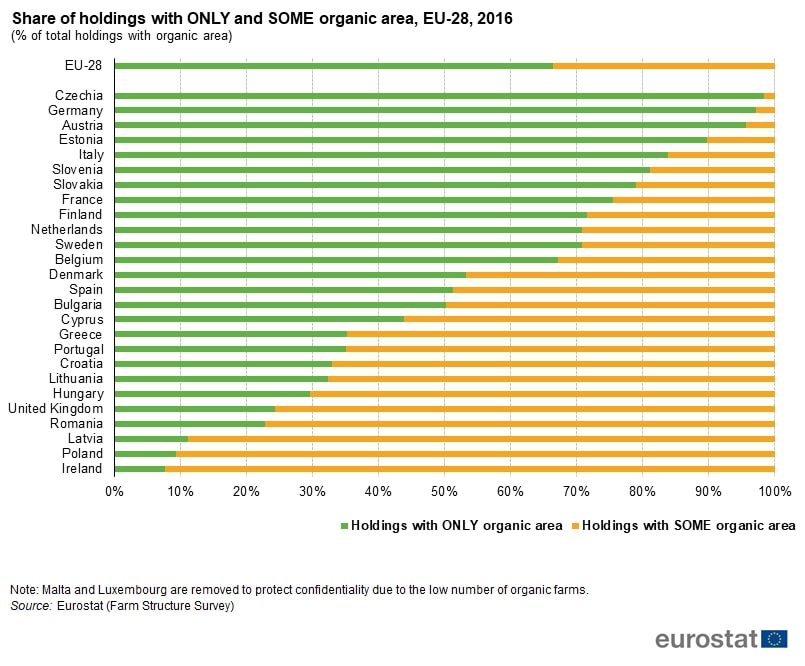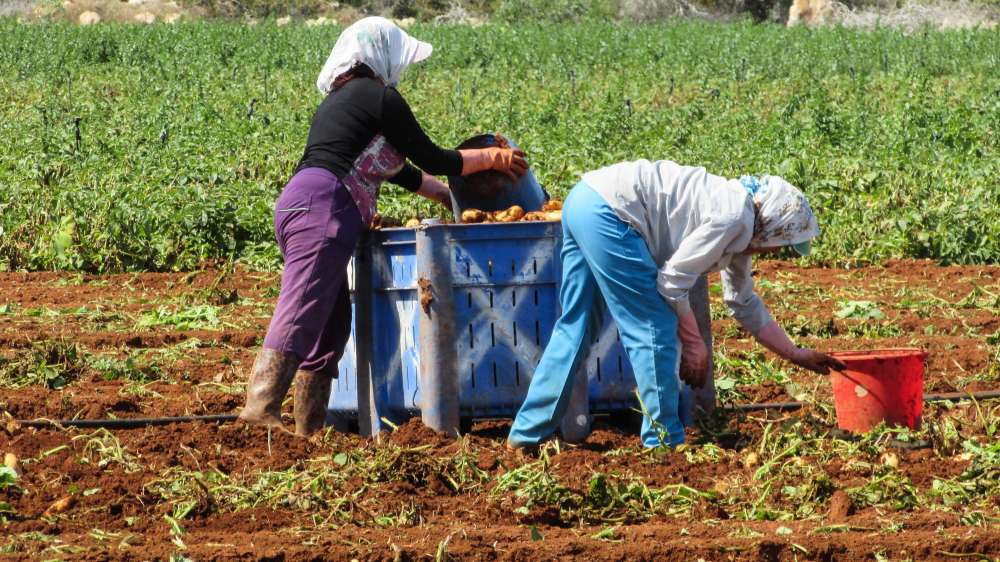Representing just 4.6 % of its total utilised agricultural area, the share of total organic farming area in Cyprus was among the lowest in the EU-28, according to Eurostat.
In 2017, just 5,616 hectares (ha) of the total 122,087 (ha) of total utilised agricultural area in Cyprus were organic.
The 4.6 % share places Cyprus in 18th place among the EU-28 regarding their share of organic area.
The total organic area in the European Union (EU) was 12.6 million hectares in 2017, corresponding to 7 % of the total utilised agricultural area. This represents an increase of 25 % between 2012 and 2017.
The countries with the largest shares of organic area were Austria (23.4 % of total utilised agricultural area), Estonia (19.6 %) and Sweden (19.2 %), followed by Italy (14.9 %), Czechia (14.1 %), Latvia (13.9 %) and Finland (11.4 %).
In the remaining EU countries, the share of organic area was below 10 %, with the lowest proportions observed in Malta (0.4 %), Ireland (1.7 %), Romania (1.9 %), Bulgaria (2.7 %) and the United Kingdom (2.9 %).

High potential for organic production
With more than 30% of its total agricultural land under conversion to organic, Cyprus has the fifth largest share of area under conversion in among the EU-28.
Organic production comes from fully converted areas. The area under conversion as a percentage of the total organic area can give an indication of the potential growth in the organic sector in the years to come.

The majority of organic farms were fully organic in 15 EU countries
The share of farms that have only organic area ranges from 98.3 % in Czechia to 7.6 % in Ireland. The share of fully organic farms is above 50 % of farms with any organic area in Czechia, Germany, Austria, Estonia, Italy, Slovenia, Slovakia, France, Finland, Netherlands, Sweden, Belgium, Denmark, Spain and Bulgaria.

Organic farming is a way of agricultural production which uses organic production methods and places the highest emphasis on environmental and wildlife protection and, with regard to livestock production, on animal welfare considerations. Organic production involves holistic production management systems for crops and livestock, emphasising on-farm management practices over off-farm inputs.
This is accomplished by avoiding, or largely reducing, the use of synthetic chemicals such as fertilisers, pesticides, (fungicides, herbicides, insecticides), additives and veterinary medicinal products, replacing them, wherever possible, with cultural, biological and mechanical methods. Organic producers develop a healthy, fertile soil by growing and rotating a mixture of crops and using clover to fix nitrogen from the atmosphere. The production of genetically-modified (GM) crops and their use in animal feed is avoided.
Note
The total organic area is the sum of the “area under conversion” and the “certified area”. Before an area can be certified as “organic”, it must undergo a conversion process, which may take 2-3 years depending on the crop.






